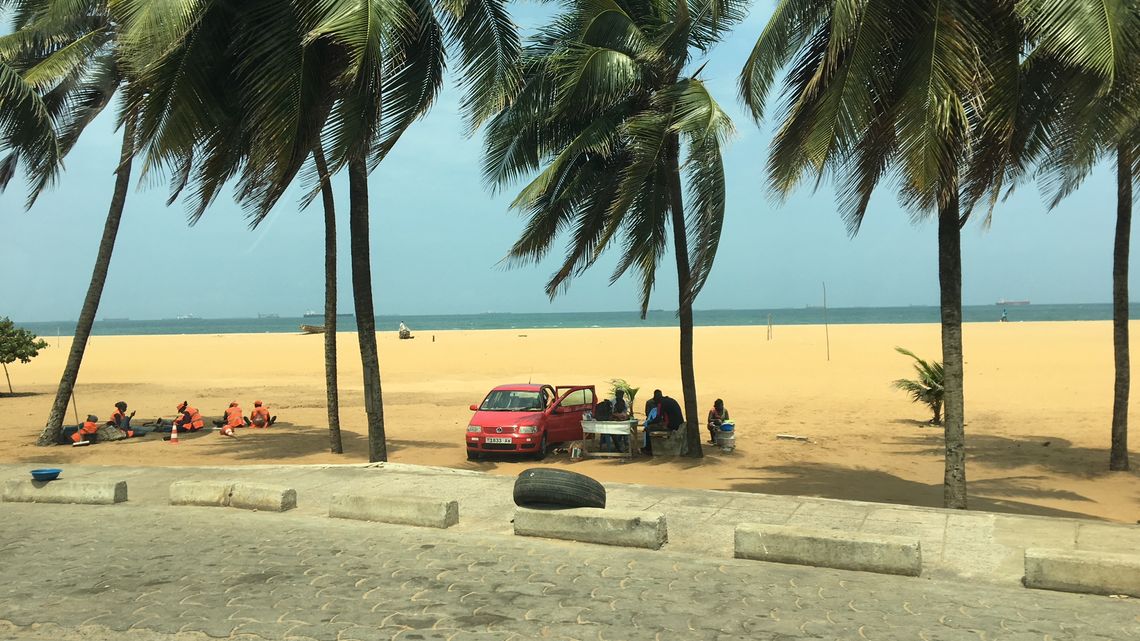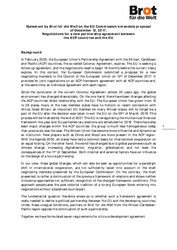Post-Cotonou: Opportunity for a new partnership on equal footing?
Ministers from 79 African, Caribbean and Pacific (ACP) countries have been meeting in Lomé, the capital of Togo, for the 107th ACP Ministers' Council meeting. It is the ACP Group's main decision-making body after the Summit of Heads of State and Government. This meeting will be followed by the 43rd joint ACP-EU Council session.
The two meetings are different from the normal, regular exchanges and are of particular importance, as the future between the ACP countries and the European Union (EU), often referred to as 'post-Cotonou', will be discussed.
In February 2020, the EU's current Partnership Agreement with the African, Caribbean and Pacific (ACP) countries, the so-called Cotonou Agreement, expires. The EU is seeking a follow-up agreement. The current agreement requires negotiations for a follow-up agreement to begin 18 months before the current agreement expires. To ensure that this runs smoothly, the European Commission submitted a proposal for a new negotiating mandate to the Council of the European Union on the 12th of December 2017. This negotiating mandate has since been discussed in many internal EU meetings and has undergone various adjustments. So far, only the first draft from December 2017 has been published, and we as Bread for the World had a closer look at the document. The core of our criticism lies in the continuation of existing structures. The EU proposal is neither innovative nor takes into account the global changes of the last 20 years, which undoubtedly have a massive impact on a new partnership agreement. Here, once again, the opportunity for a new start at equal footing is wasted. It is as if the AU-EU summit in Abidjan and the promises of a new level of partnership do not exist. Instead, an attempt is made to continue the existing relationship framework without major changes. Our detailed statement can be found at the end of this blog.
In fact, the mandate proposal was due to be adopted by the EU Council of Development Ministers on 22 May 2018. This did not happen because, in the view of the Hungarian government, there is still a clear need for adjustment on the topic of migration. An optimistic date for the official mandate was then 28 May 2018, the meeting of the EU Council of Foreign Ministers. But here too, Federica Mogherini could only report in the press statement following the meeting that Hungary's concerns had not been dispelled, but that a result could be expected within the next two days. The two days have now passed and no result has yet been announced. Hungary is stubborn about the chapter on migration. The situation seems deadlocked.
What does this mean for the joint EU-ACP Council meeting?
It means that the EU cannot travel to Lomé with an internally negotiated mandate as planned, but can possibly integrate aspects of the exchange taking place in Lomé into its mandate and the 43rd ACP-EU Council meeting won’t be the starting point of the new negotiations. For their part, the ACP countries have reached an agreement and have been able to adopt an ACP negotiating mandate. For a long time it looked as if the ACP group was very far from speaking with one voice. On their side too - similar to the EU - there were many preliminary talks and different approaches to planning the time after Cotonou. At the Continental Free Trade Area Summit in Kigali in March 2018, the African Union decided to discuss its own agreement with the EU, an agreement separate from the ACP framework, and to enter into its own bilateral agreements with the Caribbean and Pacific states. At the same time, however, the Caribbean and Pacific countries themselves discussed proposals for an ACP-EU agreement and worked out parameters for a new partnership. In the end, they agreed. Little has gotten outside about the possible controversies in the discussion. What is certain is that, unlike the EU, they have agreed on a common position.
This underlines the difficult situation of the EU. The Commission can only be mandated to start negotiations if all member states agree unanimously. As soon as a country - as is now the case with Hungary - shoots across the board, this disrupts the planned process and shows once again the EU's difficulties to speak with one voice in the area of migration. For the Hungarian Government, however, Post Cotonou may just be a bargaining chip to put pressure on other areas, namely the future cohesion policy of the EU, to introduce conditionalities in connection with respect for the rule of law.
The EU wanted to travel to Togo with a very detailed, fully negotiated document in its pocket. A document that, at first glance at least, would have left little room for negotiations. This has not been successful but may give the right starting point for the position of the ACP countries.
For the EU, on the other hand, it could become a horror without end if it does not reach an agreement in June 2018. Austria will take over the Council presidency in July and then, perhaps, we can expect more support for a Hungarian position.







